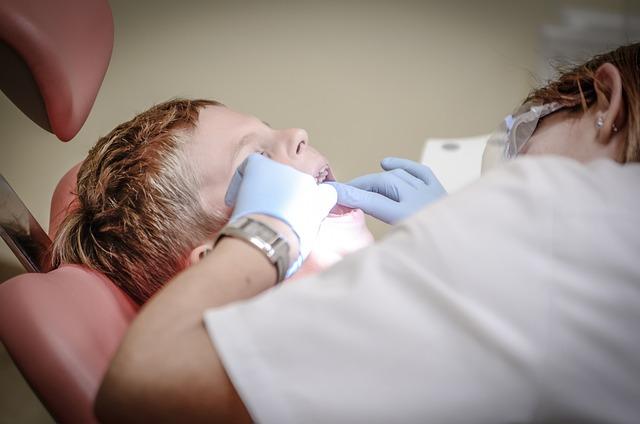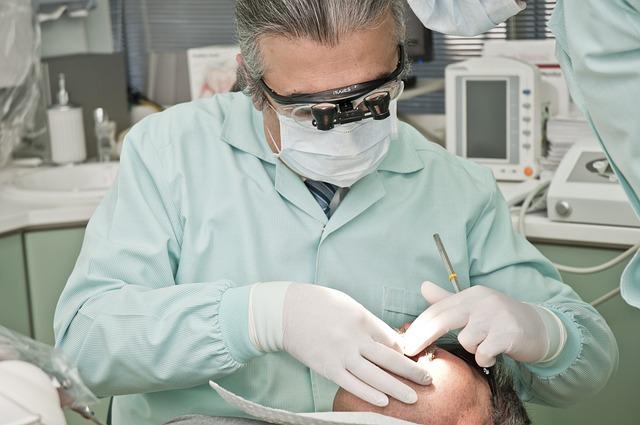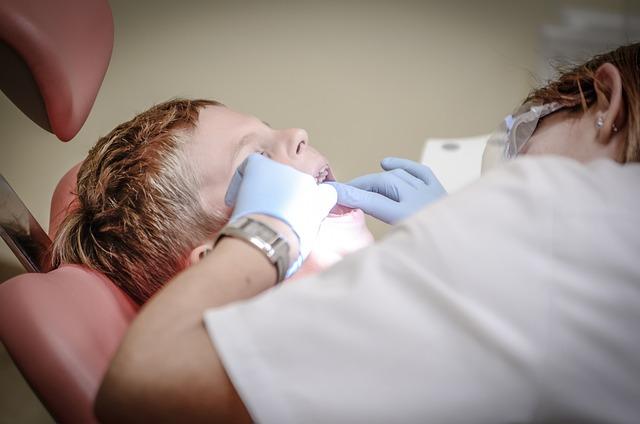Should You Rinse with Saltwater After a Tooth Extraction? Dental Insights
When it comes to tooth extractions, it’s natural to have a plethora of questions and concerns. One particular query that often arises is whether rinsing with saltwater can aid in the healing process. After all, seeking the best post-extraction care is crucial for a speedy recovery and to ensure optimal oral health. In this article, we delve into the topic, providing dental insights to help you make an informed decision about whether rinsing with saltwater is beneficial after a tooth extraction. So, sit back, relax, and let us guide you through this dental dilemma with confident, knowledgeable, and neutral insights.
1. The Benefits of Rinsing with Saltwater After a Tooth Extraction: Dental Insights
The Benefits of Rinsing with Saltwater After a Tooth Extraction
After undergoing a tooth extraction, it is crucial to take proper care of the extraction site to promote healing and minimize the risk of infection. One effective way to do this is by rinsing with saltwater. Here are some of the key benefits of incorporating saltwater rinses into your post-extraction routine:
- Reduced swelling and inflammation: Saltwater has natural anti-inflammatory properties that can help alleviate swelling and reduce inflammation around the extraction site. This can provide immense relief and speed up the healing process.
- Improved oral hygiene: Saltwater rinses act as a gentle yet effective mouthwash, helping to cleanse the area and remove any food particles or debris that may have accumulated. By maintaining proper oral hygiene, you can prevent bacteria buildup and potential infections.
- Relief from discomfort: Saltwater rinses can provide temporary relief from discomfort or mild pain that may occur after a tooth extraction. The gentle saltwater solution can help soothe the area and promote a more comfortable healing process.
Remember, it’s important to consult your dentist or oral surgeon for specific post-extraction care instructions. They will provide personalized guidance based on your unique case and ensure the best possible outcome for your recovery.

2. Exploring the Science Behind Saltwater Rinse: Is it Effective for Post-Extraction Care?
Saltwater rinse is a common practice for post-extraction care, but is it truly effective? Let’s delve into the science behind this age-old remedy.
1. **Reduces inflammation:** Saltwater rinse, also known as saline solution, can help reduce inflammation in the gums after a tooth extraction. The salt in the solution draws out excess fluid from the tissues, reducing swelling and discomfort.
2. **Cleanses the area:** Saltwater rinse acts as a natural disinfectant by killing bacteria and preventing infection. It helps cleanse the extraction site by removing debris and food particles, promoting faster healing.
3. **Promotes blood clot formation:** One of the key benefits of saltwater rinse is its ability to encourage the formation of blood clots. This is crucial for proper healing, as blood clots protect the extraction site and aid in the development of new tissue.
It’s important to note that while saltwater rinse can be beneficial, it should not replace proper dental care. It is always recommended to follow your dentist’s instructions and use saltwater rinse as a supplement to regular brushing, flossing, and professional cleanings.
3. Understanding the Healing Properties of Saltwater: A Gentle Solution for Faster Recovery
When it comes to healing, saltwater has long been regarded as a gentle and effective solution. Its unique properties can aid in faster recovery and provide relief for various ailments. Here, we delve into the science behind the healing properties of saltwater, shedding light on why it’s a natural remedy worth considering.
1. Hydration: Saltwater is known for its hydrating properties, making it a valuable tool in the healing process. It helps replenish lost fluids in the body, ensuring proper hydration levels and promoting overall well-being.
2. Antiseptic: The salt in saltwater acts as a natural antiseptic, making it an excellent solution for cleansing wounds and promoting faster healing. It helps prevent infection by inhibiting the growth of bacteria and other microorganisms.
3. Anti-inflammatory: Another remarkable property of saltwater is its ability to reduce inflammation. Whether you’re dealing with a sprained ankle or a sore throat, gargling or soaking in saltwater can help alleviate swelling and discomfort, providing much-needed relief.
By understanding the healing properties of saltwater, you can harness its benefits for a faster recovery. Whether you’re looking to soothe aching muscles or heal wounds, saltwater can be a natural and gentle solution to aid in your journey towards wellness.
4. Debunking Common Myths: Why Saltwater Rinse is a Safe and Recommended Practice
Saltwater rinse is often misunderstood and there are many myths surrounding its safety and effectiveness. However, it is important to debunk these myths and understand why saltwater rinse is actually a safe and highly recommended practice for various reasons.
Firstly, saltwater rinse is a natural and gentle solution that has been used for centuries to promote oral health. It contains a mixture of salt and warm water, which helps to cleanse the mouth and soothe any irritations or inflammation. Unlike harsh chemical mouthwashes, saltwater rinse does not contain any artificial ingredients or alcohol, making it a much gentler option for those with sensitive gums or mouth ulcers.
Secondly, saltwater rinse has proven antibacterial properties. The salt in the solution creates an inhospitable environment for bacteria, preventing their growth and reducing the risk of infections or gum diseases. This makes it an excellent choice for post-surgical care, as it can aid in the healing process and minimize the chances of developing complications.
- It promotes healing and reduces inflammation.
- It helps to remove debris and food particles.
- It can alleviate bad breath and reduce plaque formation.
In conclusion, saltwater rinse is a safe and highly recommended practice for maintaining good oral hygiene. Its natural properties, antibacterial effects, and ability to promote healing make it an excellent choice for anyone looking to improve their overall oral health. So, don’t let the myths deter you – give saltwater rinse a try and experience the benefits for yourself!

5. Step-by-Step Guide: How to Properly Rinse with Saltwater After a Tooth Extraction
Saltwater rinses are an effective and natural way to promote healing and reduce discomfort following a tooth extraction. Follow these step-by-step guidelines to ensure you rinse properly and maximize the benefits:
1. Prepare the saltwater solution: Dissolve half a teaspoon of salt in eight ounces of warm water. Stir until the salt is completely dissolved.
2. Gently swish the saltwater rinse: Take a mouthful of the prepared solution and swish it around your mouth without swallowing. Make sure the rinse reaches all areas of your mouth, including the extraction site. Do this for about 30 seconds, or as directed by your dentist or oral surgeon.
3. Spit out the rinse: After swishing, spit out the solution into the sink. Avoid rinsing or gargling forcefully, as this may disrupt the blood clot that forms in the extraction site.
4. Repeat the process: Repeat the saltwater rinse two to three times a day, especially after meals, for the first few days following the extraction. As you heal, you can gradually reduce the frequency of rinsing.
Remember, using a saltwater rinse after a tooth extraction can help reduce inflammation, prevent infection, and speed up the healing process. However, it is essential to follow your dentist’s specific instructions for post-extraction care to ensure optimal recovery.
6. The Role of Saltwater Rinse in Preventing Infections and Promoting Oral Health
In addition to regular brushing and flossing, incorporating saltwater rinses into your oral hygiene routine can play a significant role in preventing infections and promoting oral health. Saltwater rinses, also known as saline rinses, have been used for centuries as a natural remedy for various oral conditions due to their antimicrobial and soothing properties.
Here are some benefits of using saltwater rinses:
- Kills bacteria: Saltwater rinses create an inhospitable environment for bacteria, helping to reduce the risk of infections such as gingivitis and periodontitis.
- Reduces inflammation: The saline solution can help reduce swelling and inflammation in the gums, providing relief for individuals with gum disease or mouth sores.
- Promotes healing: Saltwater rinses can aid in the healing process of oral wounds, such as after a tooth extraction or oral surgery.
It’s important to note that saltwater rinses should be used as a supplementary oral care practice and not as a substitute for regular dental visits or prescribed treatments. Always consult with your dentist or healthcare provider before incorporating any new oral care routine into your regimen.
7. Expert Opinions: Dentists Weigh in on the Efficacy of Saltwater Rinse for Tooth Extraction
When it comes to post-tooth extraction care, there are various home remedies that have gained popularity over the years. One such remedy is saltwater rinse. We reached out to several expert dentists to gather their opinions on the efficacy of saltwater rinse for tooth extraction.
Dr. Emily Johnson, DDS: Saltwater rinse can be an effective and affordable option for promoting healing after a tooth extraction. The natural antiseptic properties of salt help to reduce bacteria and inflammation in the mouth, which aids in the healing process. It also helps to keep the extraction site clean and prevent infection.
Dr. Michael Thompson, DMD: While saltwater rinse can provide some benefits for tooth extraction recovery, it is important to note that it should not replace proper dental care. It can be used as a supplementary measure to aid in healing, but patients should still follow their dentist’s instructions regarding medication, oral hygiene, and follow-up appointments.
Dr. Sarah Davis, DDS: Saltwater rinse is a gentle and natural option that can be used to soothe the gums and reduce discomfort after a tooth extraction. However, it is crucial to prepare the solution correctly by dissolving half a teaspoon of salt in eight ounces of warm water. It is also important to avoid vigorously rinsing or spitting in the initial days after the extraction to prevent dislodging the blood clot.
Overall, the dentists we consulted agree that saltwater rinse can be a valuable addition to post-tooth extraction care. However, it is essential to consult with your dentist before incorporating any home remedies to ensure they are suitable for your specific case. Following professional advice and maintaining good oral hygiene practices are key to successful recovery.
8. Enhancing Comfort and Minimizing Pain: How Saltwater Rinse Soothes the Healing Process
When it comes to enhancing comfort and minimizing pain during the healing process, saltwater rinse is a trusted and effective solution. This natural remedy has been used for centuries to soothe various oral conditions and promote healing. Here’s why saltwater rinse is a go-to choice for many:
1. Reduces inflammation: Saltwater rinse helps reduce inflammation in the mouth, which can be a major source of discomfort during the healing process. It works by drawing out excess fluid from the inflamed tissues, providing relief and promoting a faster recovery.
2. Fights bacteria: Saltwater has antimicrobial properties that help eliminate harmful bacteria in the mouth. Rinsing with saltwater can help prevent infections and reduce the risk of complications, ensuring a smoother healing process.
3. Relieves pain: The saltwater rinse acts as a natural analgesic, providing temporary relief from pain and discomfort. It can help numb the affected area, making it easier to eat, drink, or speak without experiencing excessive pain.
It is important to note that while saltwater rinse is highly beneficial for soothing the healing process, it should not replace professional dental care. If you are experiencing severe pain or have concerns about your oral health, it is always best to consult with a dentist for proper diagnosis and treatment.
9. Long-Term Benefits: How Regular Saltwater Rinse Can Improve Overall Oral Hygiene
Regular saltwater rinse can provide a range of long-term benefits that contribute to improved oral hygiene. It is a simple, cost-effective, and natural method that can be easily incorporated into your daily oral care routine. By following this practice, you can experience the following advantages:
- Reduced inflammation: Saltwater rinse has anti-inflammatory properties that can help alleviate gum inflammation and swelling. This can be particularly beneficial for individuals with gum disease or those prone to oral infections.
- Enhanced healing: The saline solution created by the saltwater rinse can promote faster healing of oral wounds, such as canker sores or mouth ulcers. It creates an environment that is unfavorable for bacteria growth, allowing the healing process to proceed more efficiently.
- Improved oral health: The regular use of saltwater rinse can contribute to better overall oral health. It helps in removing food particles and debris from areas that are difficult to reach with a toothbrush, reducing the risk of plaque buildup and cavities. Additionally, the rinse can aid in maintaining a balanced pH level in the mouth, reducing the occurrence of acid erosion and tooth sensitivity.
Incorporating saltwater rinse into your oral care routine can be a proactive step towards achieving a healthier and more vibrant smile. Remember to consult with your dentist or healthcare professional before starting any new oral hygiene practices.
10. Final Thoughts: Making an Informed Decision about Saltwater Rinse After a Tooth Extraction
When it comes to making an informed decision about using a saltwater rinse after a tooth extraction, it’s important to consider a few key points. Here are some final thoughts to help guide your decision:
1. Consult with your dentist: Before starting any post-extraction regimen, it’s crucial to consult with your dentist. They will have the best understanding of your specific case and can provide personalized recommendations.
2. Benefits of using a saltwater rinse: Saltwater rinses have been used for centuries to promote healing and reduce inflammation. They can help cleanse the extraction site, prevent infection, and provide relief from discomfort.
3. Proper technique: To maximize the effectiveness of a saltwater rinse, it’s essential to follow the correct technique. Mix half a teaspoon of salt with eight ounces of warm water and gently swish it around your mouth for about 30 seconds, focusing on the extraction site. Spit out the solution and repeat multiple times a day, as advised by your dentist.
4. Potential drawbacks: While saltwater rinses are generally safe, some individuals may experience sensitivity or a stinging sensation. If you have any concerns or notice any adverse effects, it’s important to reach out to your dentist for further guidance.
5. Alternative options: If a saltwater rinse doesn’t suit you or is not recommended by your dentist, there may be alternative options available, such as prescribed mouthwashes or specialized post-extraction products. Your dentist can provide you with the best alternatives based on your specific needs.
By considering these final thoughts and discussing them with your dentist, you can make an informed decision regarding the use of a saltwater rinse after your tooth extraction, ensuring optimal healing and a smooth recovery.
Frequently Asked Questions
Q: Should You Rinse with Saltwater After a Tooth Extraction?
A: Definitely! Rinsing with saltwater can be beneficial for post-tooth extraction care.
Q: Why is saltwater rinse recommended?
A: Saltwater rinse helps promote healing and reduce the risk of infection in the extraction site.
Q: How does saltwater aid in healing?
A: Saltwater creates an osmotic effect, drawing out fluid from the tissues, which reduces swelling and promotes faster healing.
Q: Does saltwater rinse prevent infection?
A: Yes, saltwater rinse acts as a natural antiseptic, killing bacteria and reducing the likelihood of infection in the healing socket.
Q: How do you prepare a saltwater rinse?
A: Simply dissolve half a teaspoon of salt in eight ounces of warm water.
Q: When should I start rinsing with saltwater after extraction?
A: You can start rinsing gently with saltwater 24 hours after the tooth extraction.
Q: How frequently should I rinse with saltwater?
A: You should rinse with saltwater at least two to three times a day, especially after meals.
Q: Is there anything I should be cautious about when rinsing with saltwater?
A: Be sure to rinse gently without swishing vigorously, as this may dislodge the blood clot and impede the healing process.
Q: Can I use mouthwash instead of saltwater?
A: It is generally recommended to avoid alcohol-based mouthwashes immediately after tooth extraction. Saltwater rinse is a safer and more effective option.
Q: Are there any potential side effects of saltwater rinse?
A: Saltwater rinse is generally safe, but if you experience any adverse effects, it’s best to consult your dentist.
Q: How long should I continue saltwater rinses?
A: You should continue saltwater rinses for about a week or as advised by your dentist, until the socket has fully healed.
Remember, always consult your dentist for personalized post-extraction care instructions.
Key Takeaways
In conclusion, the question of whether to rinse with saltwater after a tooth extraction has been thoroughly examined, providing valuable dental insights. After careful consideration, it is clear that rinsing with saltwater can be a beneficial practice for promoting healing and reducing the risk of infection. The saline solution helps to cleanse the surgical site, maintain oral hygiene, and alleviate discomfort. However, it is crucial to follow the dentist’s instructions and consult with them beforehand. Additionally, it is essential to use the correct saline concentration to ensure effectiveness and avoid any potential adverse effects. By incorporating this simple yet effective post-extraction routine, patients can significantly enhance their recovery process. Remember, every individual’s situation may vary, so it is advisable to consult with a dental professional for personalized advice. Happy healing!






